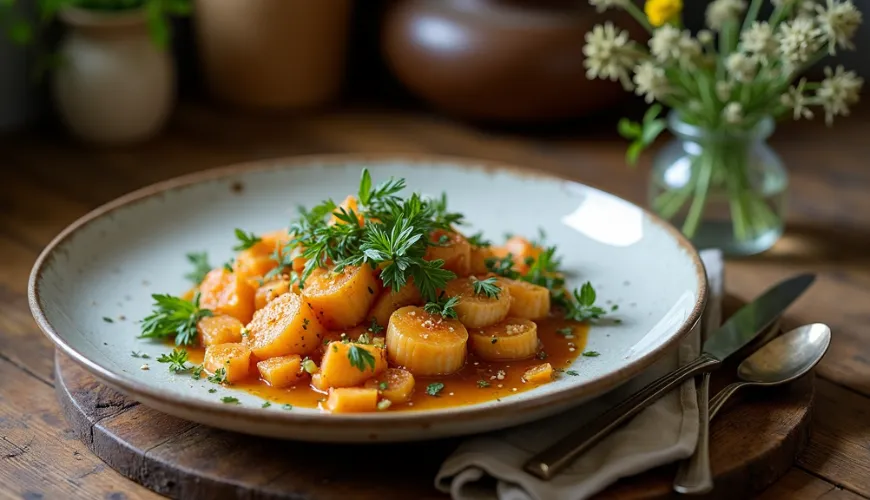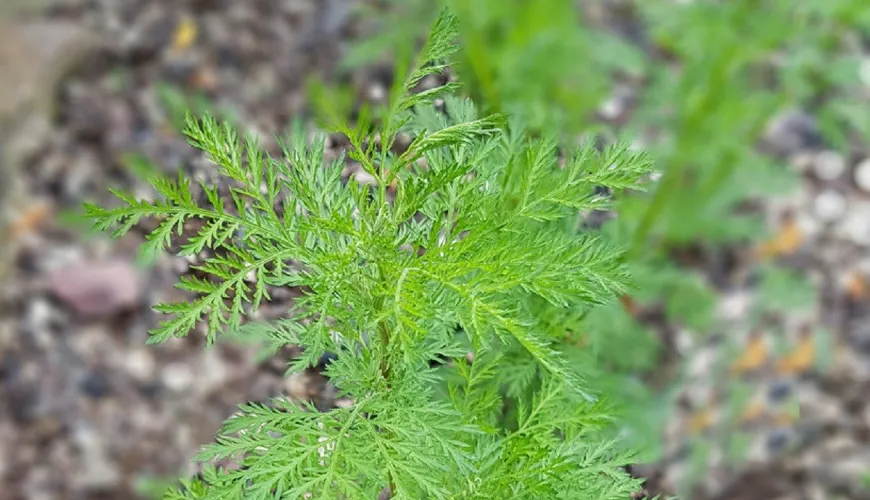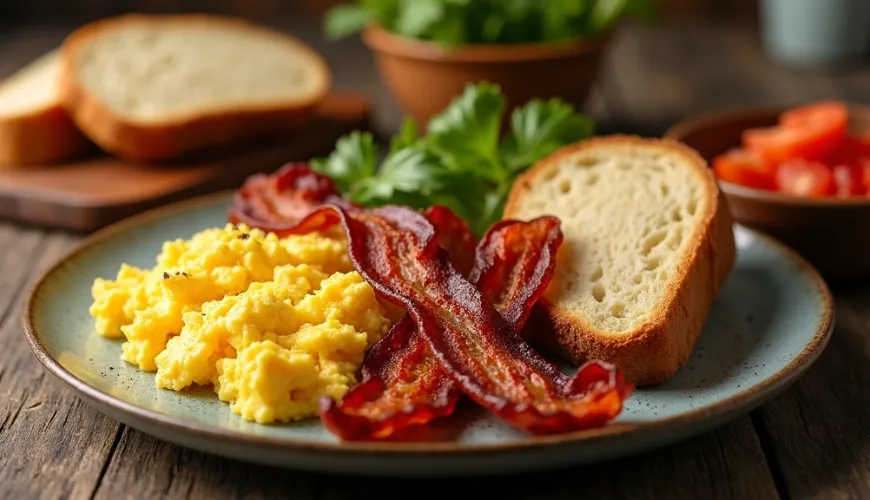
Pasta with bacon is a hearty treasure in every family

Uhlířina - a dish that smells of childhood and tradition
Few meals carry as much nostalgia and straightforward simplicity as uhlířina. This dish, also known as grenadýrmarš, is deeply rooted in Central European kitchens and remains one of the most popular representatives of the so-called "poor cuisine" in the Czech Republic. Despite, or perhaps because of, its heartiness, simplicity, and distinct flavor, it continues to win hearts in modern households that are increasingly turning back to simple, seasonal, and sustainable recipes.
Where did uhlířina come from?
The name "uhlířina" evokes the rugged yet romantic idea of ancient charcoal burners who burned wood to make charcoal in the woods and cooked with whatever they had on hand. Similar to the Italian carbonara, which also arose from "charcoal burners' needs," Czech uhlířina is a dish full of practical logic and modest genius. It is based on cheap ingredients – boiled potatoes, pasta, and onion – complemented with paprika, lard or oil, and possibly smoked meat if the budget allowed.
Under another name, grenadýrmarš, this dish was known especially during the times of the Austro-Hungarian monarchy. It was served to soldiers because it was hearty, quick to prepare, and energy-giving. In both versions of the name, the same qualities reflect – honesty, simplicity, and the ability to feed the whole family with minimal resources.
Uhlířina recipe
Today, as we talk about returning to roots and responsible cooking, uhlířina is once again coming into the spotlight. It is not just a retro memory but proof that even basic ingredients can taste great if prepared correctly.
There are many recipes for uhlířina, as well as family variations. It is not a dish with a strictly defined process but rather a culinary improvisation. Here is one of the most traditional versions known to most Czechs:
Ingredients:
- 250 g boiled potatoes (preferably from the day before)
- 250 g cooked pasta (flecks, elbows, or wide noodles)
- 2 large onions
- 3 tablespoons of oil or lard
- 1 tablespoon of sweet paprika
- Salt, pepper, optionally marjoram
- Optional: chopped sausage, smoked meat, or pickled cucumber
Instructions:
- Sauté the onion until golden brown in a pan or deep pot.
- Add diced potatoes and fry until crispy.
- Stir in the cooked pasta and season with paprika, salt, and pepper.
- Briefly cook everything together until the ingredients are nicely combined.
- Finally, you can add chopped smoked meat or serve it with just a pickled cucumber.
Simple? That's where its charm lies! Uhlířina is a dish that doesn't need to follow templates. Some add garlic, others an egg, and some can't imagine a version without meat. However, it always holds true that the base is honest onion and properly cooked pasta and potatoes.
Uhlířina with pasta - a hearty treasure from grandma's kitchen
Perhaps you still remember how your grandmother served you a plate of uhlířina with pasta and potatoes, sprinkled with fresh pepper or a little cheese. Childhood memories return with every bite, reminding you of a time when dishes weren't complicated but were nourishing and lovingly prepared.
Today, uhlířina is also discussed in connection with a minimalist approach to food. Preparing a dish that uses leftovers from the fridge is not only economical but also ecological. At a time when a third of food is thrown away, uhlířina is an example of how to create a full and tasty meal from leftovers.
Moreover, it is a meal with a high satiating capacity – the combination of potatoes and pasta ensures that hunger won't catch you off guard. It's no wonder this recipe has survived generations. It is universal, quick, and always reliable.
Uhlířina or grenadýrmarš? It's one and the same
No matter what you call it, the essence remains the same. In some regions, the term grenadýrmarš is still used for uhlířina, which refers to the military origin of the dish. The name was derived from the Austro-Hungarian grenadiers who cooked this dish in field kitchens. And even though the preparation could vary from region to region, two things remained constant: simplicity and enough energy for the whole day.
In Slovak cuisine, this dish is also popular, sometimes under the name "granadír." It's in these cultural overlaps that we see how traditional recipes can transcend borders and unite people and tastes.
The fact that uhlířina is not just a culinary relic is evidenced by its appearance on the menus of some modern bistros or vegan establishments. There are experiments with versions without animal products, with the addition of fermented vegetables or different herbs. But the base remains: potatoes, pasta, onion – and a love for tradition.
Uhlířina as a symbol of sustainable cuisine
In today's world, where the topic of sustainable eating is increasingly relevant, uhlířina is becoming an almost ideal representative of an ecological approach to cooking. You don't need any exotic or expensive ingredients – just what you have left from the previous day. This not only saves money but also reduces food waste. According to FAO data, up to 1.3 billion tons of food are thrown away worldwide every year. Every plate of uhlířina can be a small step towards a more responsible household.
And you don't have to compromise on taste or nutritional value. Potatoes and pasta provide carbohydrates, onions offer antioxidants, and if you add a little vegetable or legumes, you get a full and balanced meal. Moreover, uhlířina can be easily prepared in a vegan or gluten-free version – instead of regular pasta, you can use buckwheat, rice, or chickpea pasta.
"The fewer ingredients, the stronger the taste. And more room for honest ingredients," says food blogger and advocate of seasonal cooking Jana Králová. According to her, uhlířina perfectly illustrates how you can make a lot out of a little – in terms of flavor, feelings, and nutrition.
And how to prepare it with regard to the planet? Opt for quality ingredients from local sources, preferably from organic farming. You can find onions and potatoes in organic quality in almost every seasonal box program. You can choose whole grain or egg-free pasta, and if you use oil, choose one that was produced locally – rapeseed, sunflower, or linseed.
Whether you prepare uhlířina as your grandmother cooked it or choose a modern twist with red lentils and fresh herbs, one thing is certain: simplicity still has its place on the plate. And sometimes, the simplest dishes bring the greatest satisfaction – even in times when refrigerators overflow with options.

